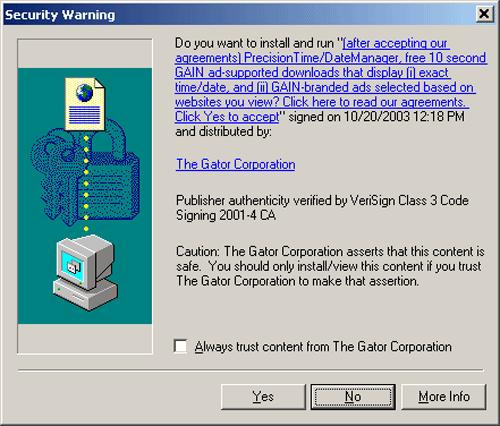The history of shareware, the original option for organizing in-app purchases
- Translation
Before the advent of software, sales worked like this: you went into a store, bought an item, and it was yours until it became obsolete or damaged and you threw it away. But the software, taking up much less physical space than any previously sold items, was not limited by these rules. Data was stored in bits and bytes and could be distributed in many different ways.
And the data decreased every day. Floppy disks gave birth to smaller floppy disks, which gave birth to hard disks, which gave birth to CD-ROMs... And if you had a modem, you didn't even need a disk! It is therefore not surprising that shareware, shareware, emerged in the wake of floppy copying because there was a need for a business model that encouraged copying.
Let's talk about how important shareware was to modern business models in the computer world.
This is an explanation of the value of shareware in the introductory catalog of The Software Labs, a mail-order shareware distributor. A fairly good catalog from 1992, which thanks to the Internet Archive can still be enjoyed today (smaller version), offers a huge number of games, educational and graphic programs. On the other hand, there are only seven applications for business - which indicates what kind of programs were created by the authors who made shareware. In the early 90s, such catalogs were common, when people without modems had to buy software in the real world.
Five shareware programs that changed the world of computing
1. PKZIP. The compression utility, created by developer Phil Katz in the late 1980s, compressed files so efficiently that it became the de facto standard that is still used today. Katz, after legal problems with a similar .arc format, made the .zip format open, and took money only for the implementation of this format. The result was a hit. But his life was very difficult; he died in 2000.2. McAfee Antivirus. Before mentions of John McAfee began to appear in , he innovated the antivirus market by becoming the first to offer such programs in shareware format. The result was so effective that his program quickly overtook Symantec's Norton Antivirus - especially after creating a successful media campaign about the Michelangelo virus.
3. Wolfenstein 3D. Of course, it was followed by Doom and Quake (and Duke Nukem 3D), but the sales strategy of this famous game - an innovation that surpassed all modern toys - proved to skeptical gamers that shareware games were not second-class software. Doom may have had more influence, but Wolf3D proved the model's viability.

How adware ruined the good name of shareware
Shareware wasn't a perfect business model—obviously, most people used the software for free—but despite Flugelman's initial claims, it was quite altruistic. It allowed small developers to survive, and allowed users to try different versions of software without spending thousands of dollars at Best Buy.The problem is that the altruism built into the model at its launch did not survive to the second generation of developers.
In the early years of Windows XP, the model broke down. The reason for this was several factors, including the identity of the websites that distributed shareware with the sites that distributed programs containing adware - this is a problem.
Sometimes adware turned into programs like Gator, which claimed to have useful properties, and at the same time included an advertising network with pop-up banners. The company that made Gator denied any connection to adware and changed its name many times until its inevitable closure.
But more often than not, adware accompanied programs as an unwanted guest, ready to litter your computer at any second. As if to reflect this shift in shareware's reputation, the Association of Shareware Professionals changed its name in 2010 to the Association of Software Professionals.
In a blog post, the association explained that “the need to distribute software by distributing floppy disks or sending checks by mail has disappeared. Many consumers have come to perceive "shareware" as "amateurishness."
Of course, shareware also has its own niches - Mac software developers, for example, Panic and Rogue Amoeba, have gained a good audience by distributing software using schemes that are essentially shareware. But in general, downloading software has become too dangerous for shareware to thrive. It's unfair, but it's a fact. The decline of shareware has paved the way for other types of software distribution, such as open source software, freemium software, or software as a service (SaaS).
It has also opened up the possibility of approaches similar to the App Store, where there is moderation to prevent junk from entering your digital device. This system is not perfect, and it is not shareware. But we certainly would not have reached the realities of today if several creative developers had not organized cottage industry in the 80s and 90s.
In 1992, when The Software Labs published its excellent catalog, the Software Publishers Association released a video that was the antithesis of the free-for-all world of shareware. The “Don’t Copy That Floppy” video used rap to clumsily promote the idea that software should not be distributed to the younger generation.
This video was quickly forgotten, and in our era people look at it very ironically.
Shareware, backed by hits like Wolfenstein 3D, Doom and Commander Keen, looked a million times cooler, and it didn't even have to resort to lame rap to sell itself.
Today we are even more welcoming to single software developers. Sites like Product Hunt exist solely to celebrate developers who venture into the unknown. It is very difficult to try to make money in such a risky way, but it is possible.
Shareware paved the way for today's independent developers to exist. Today's software culture exists because we decided to copy that floppy disk back then. And that's great, because without independent developers our software would be terrible.
Tags:
- shareware
- adware
- shareware
- software
